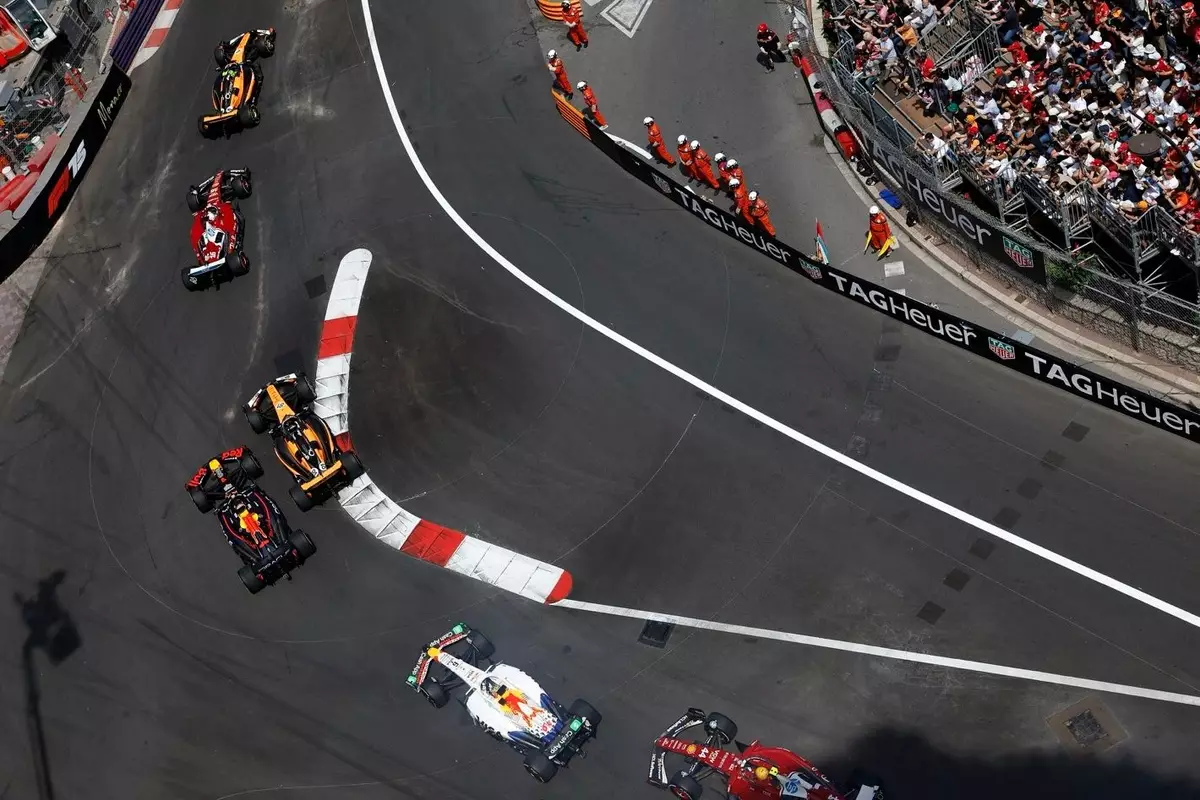In the sphere of motorsport, few events command the same reverence and cultural significance as the Monaco Grand Prix. Yet, as George Russell has pointed out, the race is increasingly becoming a stale affair that fails to deliver the excitement promised by its storied history. This realization is not one that should come as a surprise; the narrow streets of Monte Carlo—while quintessentially picturesque—have led to a predictable pattern of races dominated by pole position. Recent attempts to shake up the status quo have resulted in lackluster outcomes, prompting a deeper examination of the format itself.
F1’s decision to adopt a two-stop strategy mandated by a three-tyre set experiment illustrates the growing desperation to introduce variability into the race. Unfortunately, it became painfully evident that while strategies may have changed, the ultimate outcome remained static, with the top contenders finishing in their qualifying positions. Such consistency is stifling the thrill, indicating a need for more radical and transformative ideas.
Strategic Stagnation: The Price of Predictability
Russell expressed his frustration over the strategic norms that played out during the race. Some teams resorted to deliberately slow driving tactics, which not only disrupted the flow of the race but also compromised the integrity of competition. Furthermore, the scenario Russell found himself in—trapped behind a slower car—highlights how such strategies can turn a race into a frustrating game of chess rather than a nail-biting contest of speed.
In a sport that thrives on intense competition and razor-thin margins, this strategy is nothing short of paradoxical. The joy of racing should derive from high-speed battles, and not from calculated movements akin to a game of ‘cat and mouse.’ The very essence of motorsport seeps away when drivers aim to create advantageous gaps instead of racing to the finish line.
A Solution in Shambles: Is it Time to Rethink the Format?
Russell boldly suggested that perhaps the solution is not merely in tweaking tire strategies but fundamentally rethinking how the race itself is constructed. What if the Grand Prix was not defined by a singular race but instead mirrored an exhilarating tournament format where qualifying rounds could garner rewards? This thought process veers away from tradition and embraces a more modern approach that focuses on skill, agility, and speed over mere positioning based on qualifying outcomes.
Imagine a scenario where Saturday’s qualifying results lead to an exhilarating sprint race on Sunday, each scoring points based on performance. This would not only draw more excitement but encourage aggressive racing—breaking free from the predictable procession that has characterized Monaco for years. Russell’s suggestion to reward qualifying performance with points could serve to reignite the competitive spirit that forms the backbone of this elite sport.
The Magnificence of the Circuit Vs. the Reality of Racing
The Monaco Grand Prix remains one of the most magnificent races on the calendar, set against a stunning backdrop of luxury yachts and cheering crowds. Yet the reality for drivers has turned into a frustrating affair of waiting for openings and hoping for laps of unexplained speed. It is an illustrative example of how tradition can sometimes work against progress.
Russell lamented that the past two seasons’ wet conditions had acted as an unpredictable element, injecting the necessary excitement typical of F1 racing. However, banking on weather variability is not a sound long-term strategy for the sport; therefore, seeking structured, intrinsic excitement through reshaped race formats should be a priority.
The Joy of Racing: Finding Appropriate Engagement
The essence of F1 is not just speed but rather the visceral thrill of racing—of pushing machines to their limits and savoring the feel of sheer velocity on legendary circuits. The genuine exhilaration Russell experienced in the final laps represents what both drivers and fans crave: authentic competition. The intricate dance between skill and strategy gets overshadowed by slow-paced drives, diminishing the emotional engagement that racing should ignite.
As fans toast on the yachts of Monaco, enjoying their champagne while watching the spectacle, it becomes evident that they, too, deserve a race worth celebrating. By reconsidering the fundamental aspects of what makes Monaco special, F1 has an opportunity to reshape history—not as a series of processions but as a vibrant tapestry of speed, risk, and competition. The future of F1 racing might just depend on bold ideas that align with the breathtaking world we dare to race in.


Leave a Reply